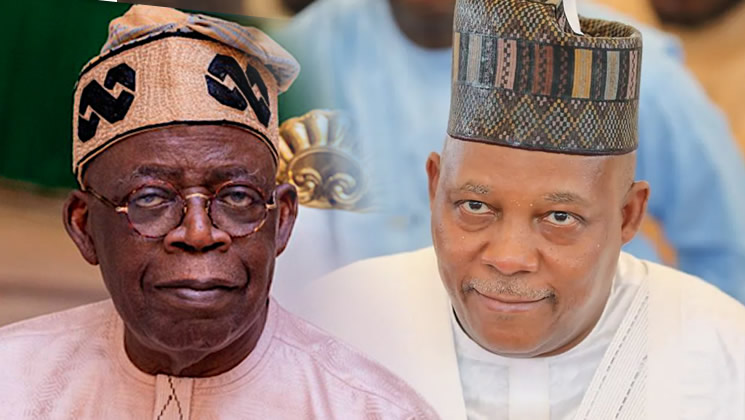2027: Why Shettima Faces Political Headwinds Despite Loyalty to Tinubu
Vice President Kashim Shettima may be walking a familiar path in Nigerian politics as speculation mounts over his fate on the 2027 presidential ticket alongside President Bola Ahmed Tinubu. While Nigeria’s political history shows that vice presidents often face challenges securing a second-term slot, Shettima’s situation appears particularly murky, raising questions not of competence or loyalty, but of calculated ambition by internal power players.
Since the beginning of the Fourth Republic in 1999, most sitting vice presidents have encountered similar political turbulence when the question of a second-term ticket arises. From Atiku Abubakar under President Obasanjo to Yemi Osinbajo under President Buhari, few have had a smooth ride into a second campaign, though none were officially dropped. An exception remains Namadi Sambo, who had no such contestation during his time as Vice President under Goodluck Jonathan.
The saga of Atiku Abubakar is particularly instructive. During President Olusegun Obasanjo’s 2002 declaration for re-election, Atiku was visibly sidelined—even absent from the planning of the announcement. Whispers of the “Mandela Option,” which proposed that Obasanjo serve just one term and hand over to Atiku, were seen as an affront to Obasanjo’s authority and allegedly orchestrated by Atiku’s loyalists. The resulting rift, although eventually patched for political expediency, permanently strained the relationship.
READ ALSO: Shock As Police Identify Man Behind Tinubu’s Security Breach in Kaduna
Fast forward to today, Shettima—despite being one of Tinubu’s earliest and staunchest supporters—is reportedly facing quiet opposition within the ruling All Progressives Congress (APC) from certain high-level political and security players who are eyeing his position ahead of the next election cycle.
Unlike his predecessors, however, no public fallout or scandal is linking Shettima to any major blunder. Rather, insiders suggest that his current political “trouble” stems from internal jostling, regional permutations, and possible plans to replace him with a Christian running mate to reconfigure the Muslim-Muslim ticket—a strategy initially adopted in 2023 that has drawn criticism.
Interestingly, during his tenure as governor of Lagos, Tinubu had several disagreements with his deputies, which some now cite as a pattern. But in Shettima’s case, there has been no visible discord or ideological rift. Observers say the VP has remained steadfast and loyal to Tinubu, even as accusations of ethnic favouritism and nepotism swirl around the administration—accusations Shettima has had to navigate carefully given the pressure from his political base in the North.
Speculation also links a top security official and other power brokers to manoeuvres aimed at replacing Shettima. Yet, none have publicly articulated any wrongdoing or strategic failure on his part. It’s a political limbo fueled more by ambition than controversy.
In retrospect, even Goodluck Jonathan, during President Umaru Musa Yar’Adua’s administration, faced a subtle political eclipse allegedly orchestrated by powerful figures like James Ibori, until fate altered the national equation with Yar’Adua’s passing.
READ ALSO: Chelsea 1-3 Flamengo: Emotional Reactions Trail Club World Cup Showdow
Similarly, Yemi Osinbajo found himself politically diminished after making assertive decisions as acting president, such as sacking the then-DSS Director-General, Lawal Daura. Despite internal backlash, Buhari retained him, albeit with visible curtailment of influence.
For Shettima, no such transgressions exist—only growing curiosity about why his political future is being quietly questioned. Analysts argue that unless a fundamental policy shift or strategic rift emerges, any attempt to replace him without proper justification could trigger political backlash, especially from the North, where his influence remains potent.
Ultimately, should President Tinubu and Vice President Shettima part ways before 2027, they may need to offer the nation more than just political explanations—they will have to answer for what they have done, or failed to do, with the mandate they currently hold.




